
Pureglim 3mg Tablet
Manufacturer
Barley Lentil Vitamins Pvt Ltd
Salt Composition
Glimepiride (3mg)
Key Information
Short Description
Pureglim 3mg Tablet is a sulfonylurea medication used to treat type 2 diabetes mellitus in adults, helping to control blood sugar levels and prevent serious complications.
Dosage Form
Tablet
Introduction
Pureglim 3mg Tablet is an antidiabetic medication that belongs to a group of medicines called sulfonylureas. It is used to treat type 2 diabetes mellitus in adults. It helps control blood sugar levels in people with diabetes thereby preventing serious complications of diabetes such as kidney damage and blindness.
Directions for Use
Take this medicine in the dose and duration as advised by your doctor. Swallow it as a whole. Do not chew, crush or break it. Pureglim 3mg Tablet is to be taken with food.
How it works
Pureglim 3mg Tablet is an antidiabetic medication. It works by increasing the amount of insulin released by the pancreas in order to lower blood glucose.
Quick Tips
Be careful while driving or operating machinery until you know how Pureglim 3mg Tablet affects you. Always carry some sugary food or fruit juice with you in case you experience hypoglycemic symptoms such as cold sweats, cool pale skin, tremor and anxiety. Your doctor may check your liver function regularly. Inform your doctor if you develop symptoms such as abdominal pain, loss of appetite, or yellowing of the eyes or skin (jaundice).
Related Medicines
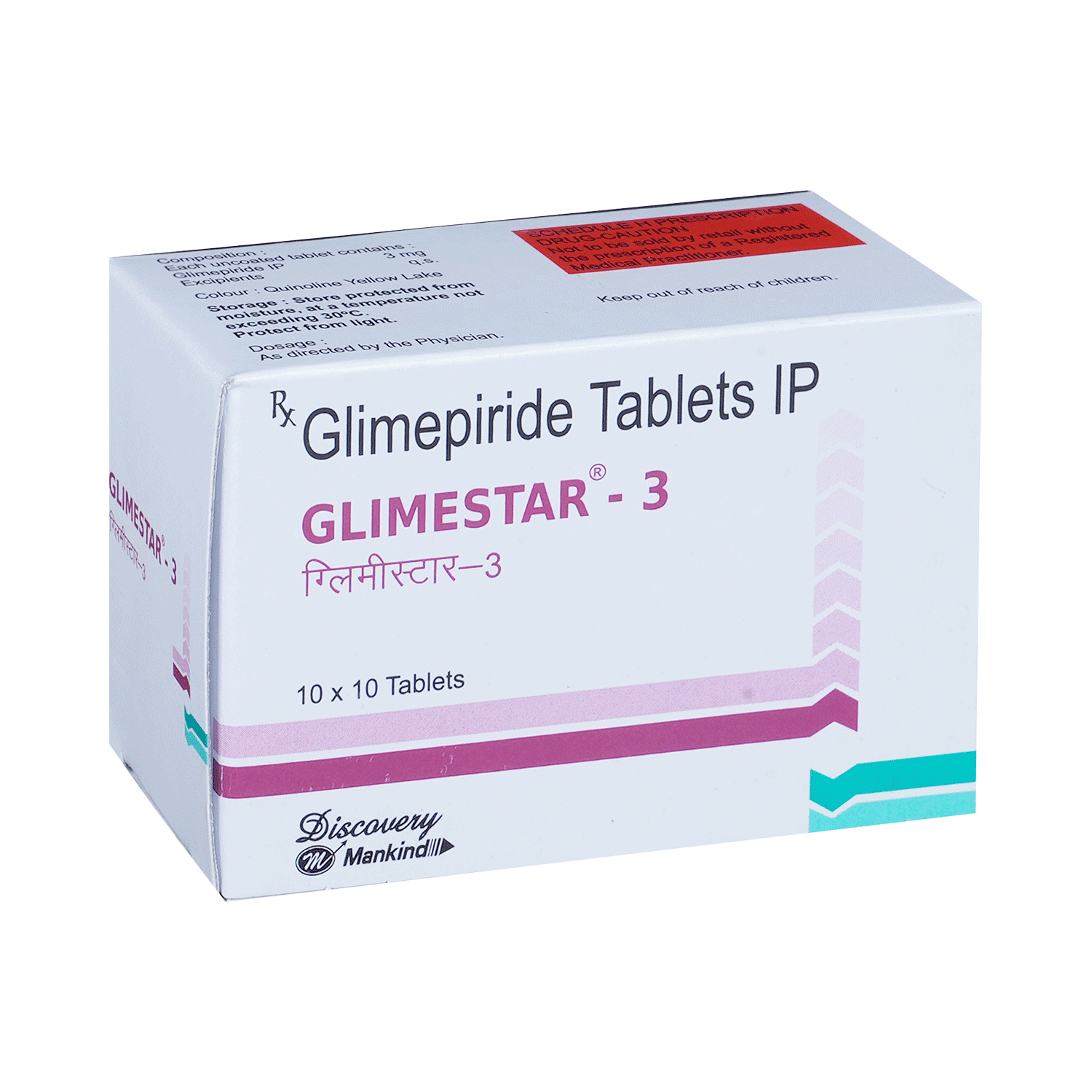
Glimestar 3 Tablet
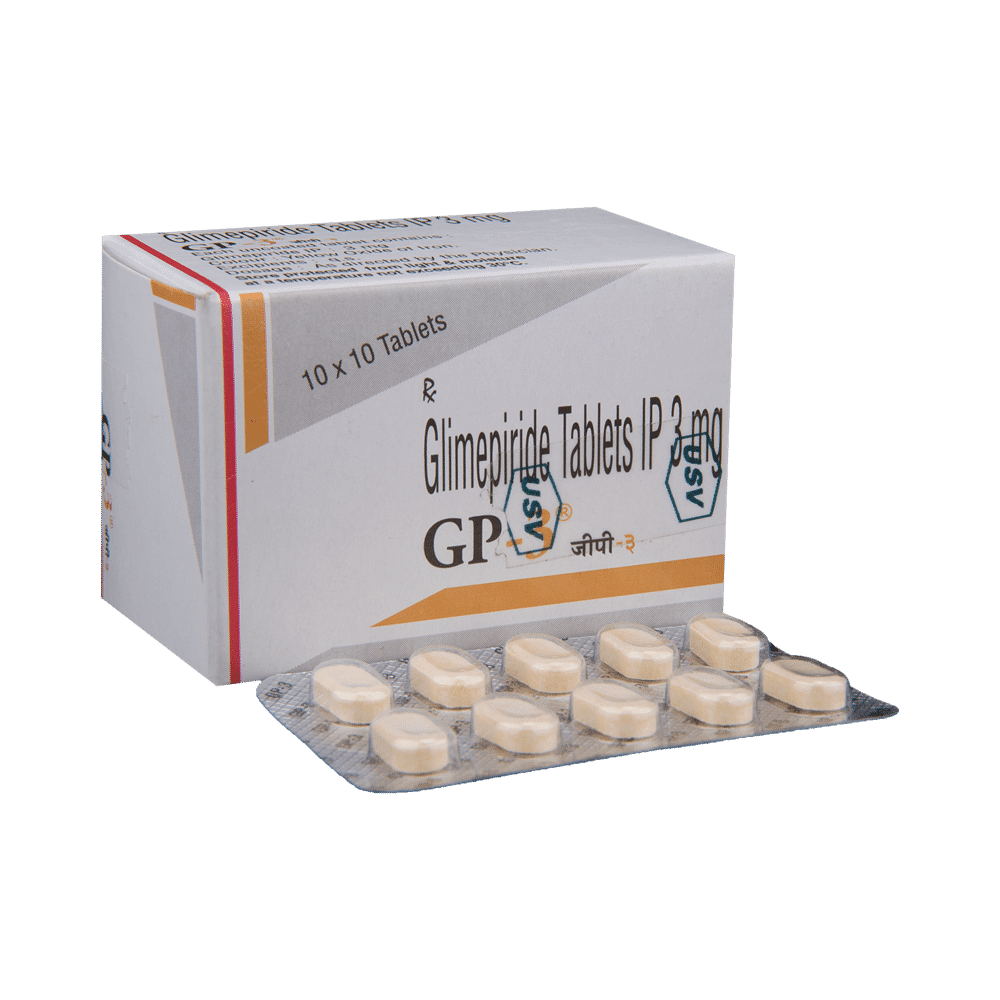
GP-3 Tablet
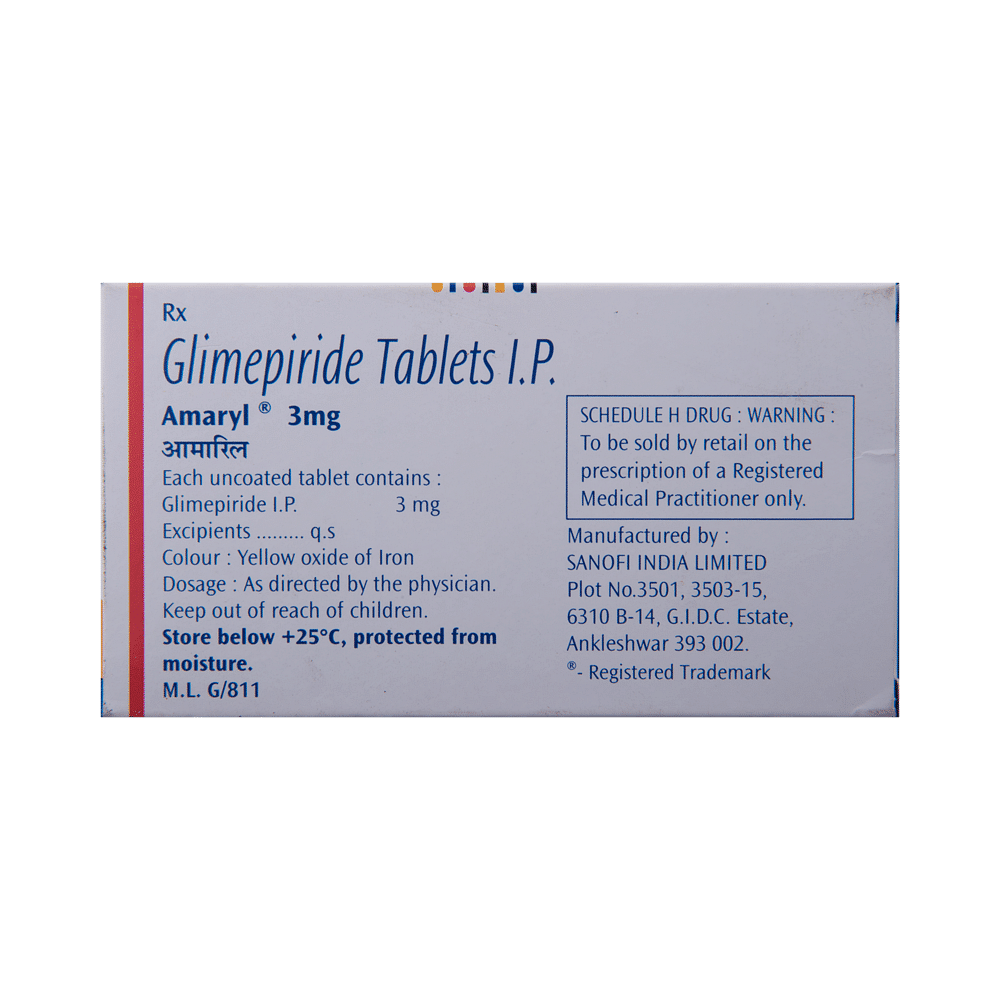
Amaryl 3mg Tablet
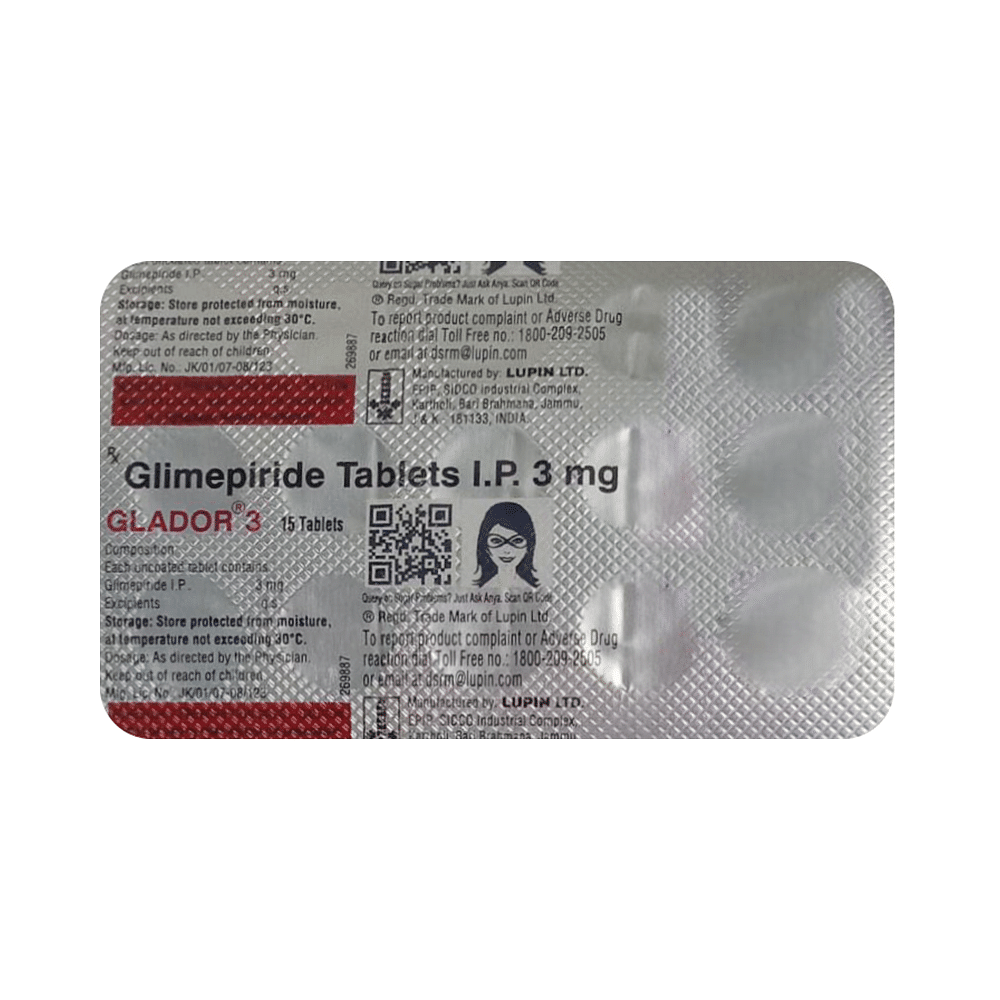
Glador 3 Tablet
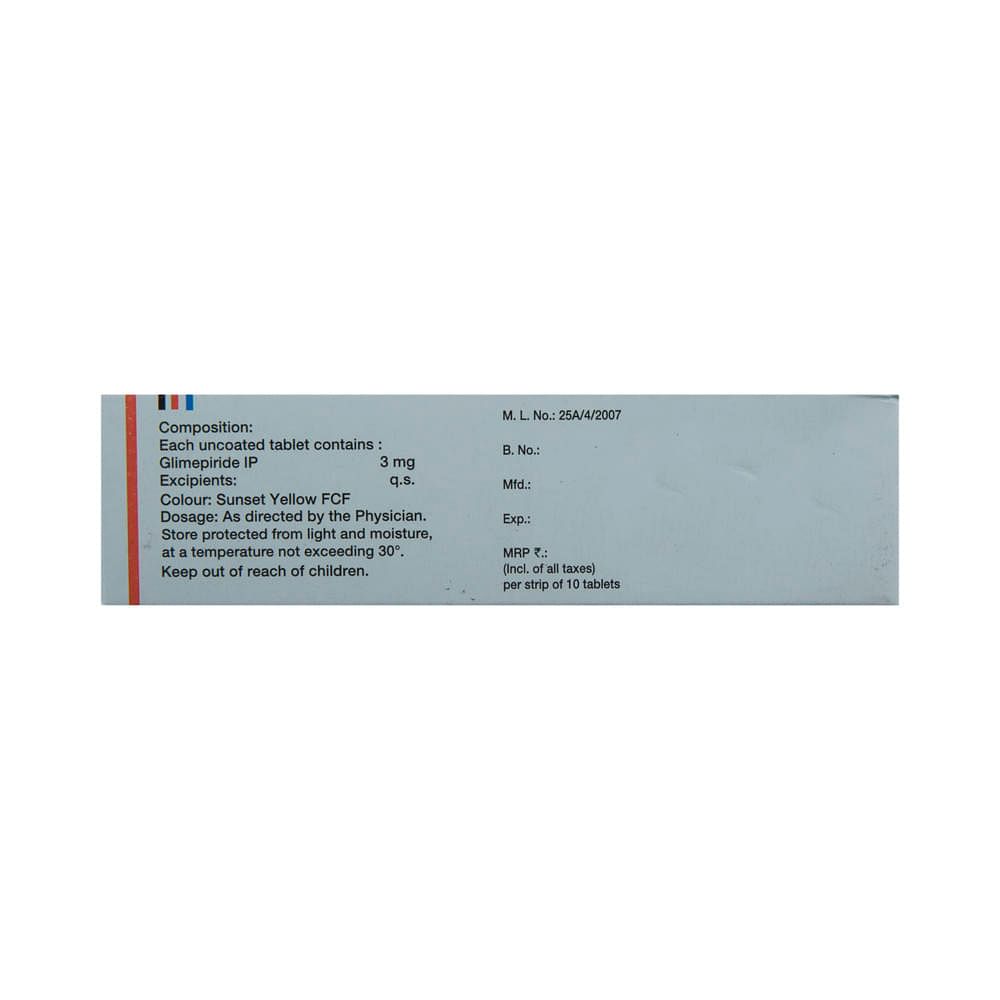
Glimiprex 3 Tablet
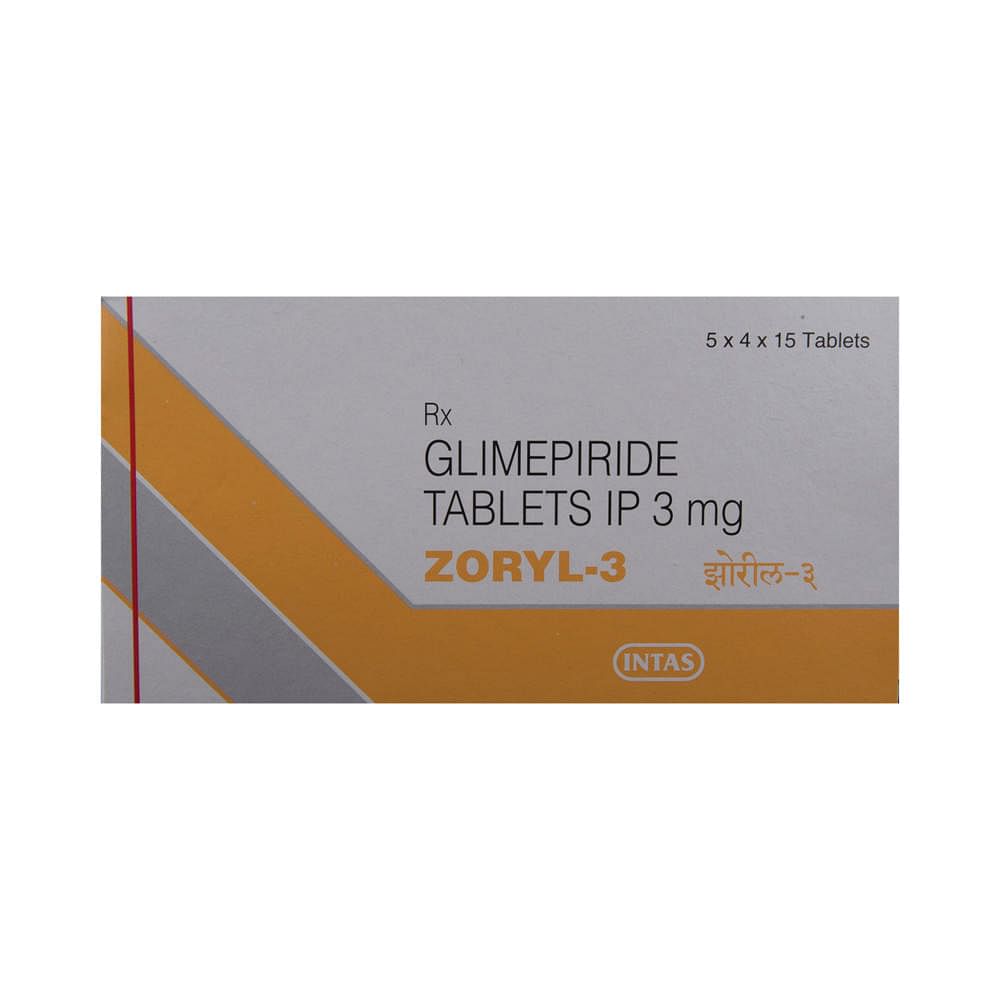
Zoryl 3 Tablet
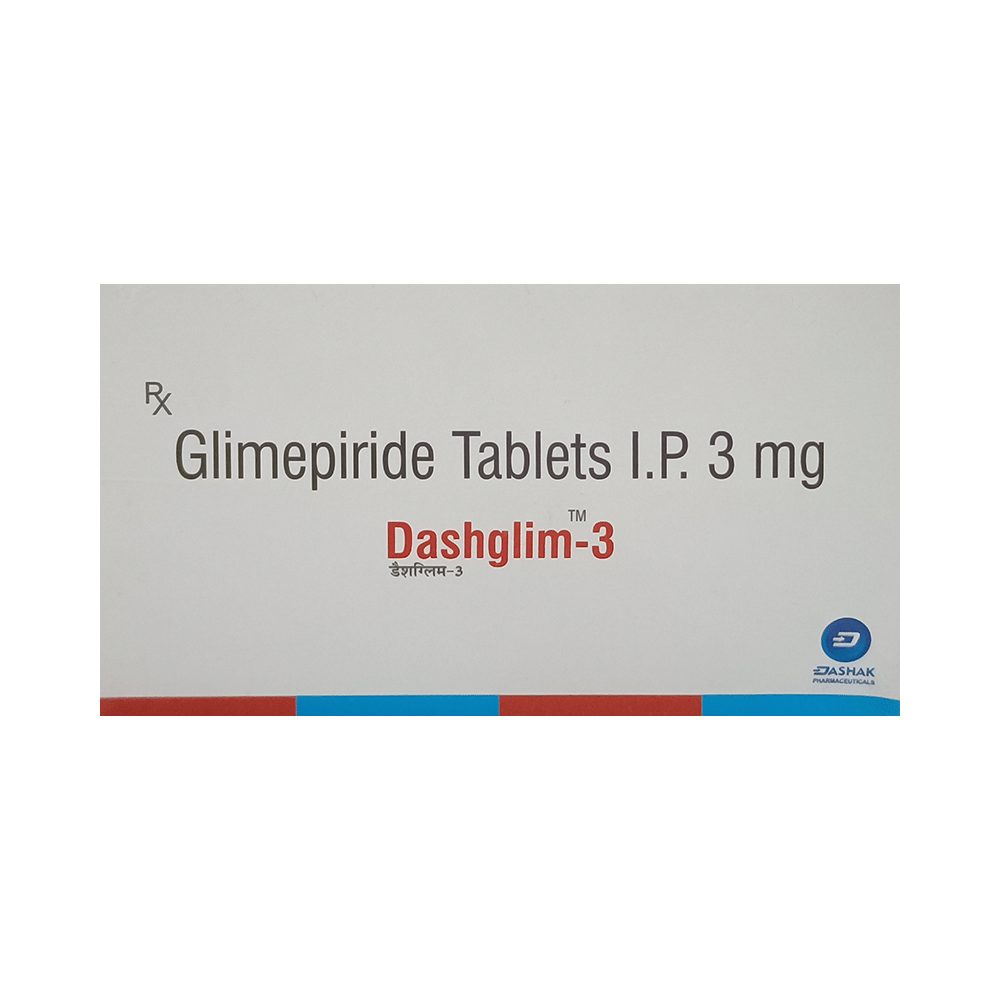
Dashglim 3 Tablet

Delmet 3mg Tablet

Copride 3mg Tablet

Atonpride 3mg Tablet
Frequently asked questions
What is the recommended starting dose of Pureglim 3mg Tablet?
The recommended starting dose of Pureglim 3mg Tablet is 1 mg or 2 mg once daily, administered with breakfast. If you are at a higher risk of low blood sugar (e.g., the elderly or patients with renal impairment), your doctor may start with a lower dose of 1 mg once daily.
Does Pureglim 3mg Tablet make you sleepy?
Pureglim 3mg Tablet itself does not cause sleepiness. However, it may cause hypoglycemia (low blood sugar) when used with other anti-diabetes medicine, which can lead to drowsiness or difficulty sleeping.
Is Pureglim 3mg Tablet safe for kidneys?
Pureglim 3mg Tablet is generally safe for patients with normal kidney function. However, its use should be avoided in patients with severe kidney disease since the medication is primarily eliminated by the kidneys.
Does Pureglim 3mg Tablet cause memory loss?
There is no established link between Pureglim 3mg Tablet and memory loss. However, hypoglycemia (low blood sugar) can cause problems with concentration and reduced alertness.
Who should not take Pureglim 3mg Tablet?
You should avoid taking Pureglim 3mg Tablet if you are allergic to it, have severe kidney or liver disease, have G6PD-deficiency (an inherited condition affecting red blood cells), or if your doctor advises against its use.
Can Pureglim 3mg Tablet cause dizziness?
Yes, Pureglim 3mg Tablet can cause dizziness as a side effect. If you experience dizziness while taking the medication, sit or lie down until the symptoms pass and take sugary food or fruit juice with you in case of emergency.
Can people with diabetes have proteins?
Yes, people with diabetes should include proteins along with other essential nutrients in their diet. Proteins are a major source of energy and help maintain overall health.
Are artificial sweeteners good for people with diabetes?
No, artificial sweeteners are not recommended for individuals with diabetes due to potential side effects and the risk of triggering sugar cravings.
Can diabetes cause kidney failure?
Yes, uncontrolled diabetes can lead to kidney failure in the long run. It is essential to monitor blood sugar levels regularly, follow a balanced diet, and take prescribed medications on time to prevent this complication.
Can diabetes be cured?
While there is no cure for diabetes itself, with lifestyle changes, diet, and medication, individuals can manage their condition and lead a healthy life. Regular monitoring of blood sugar levels, proper nutrition, and adherence to prescribed treatments are key to preventing complications associated with the disease.


